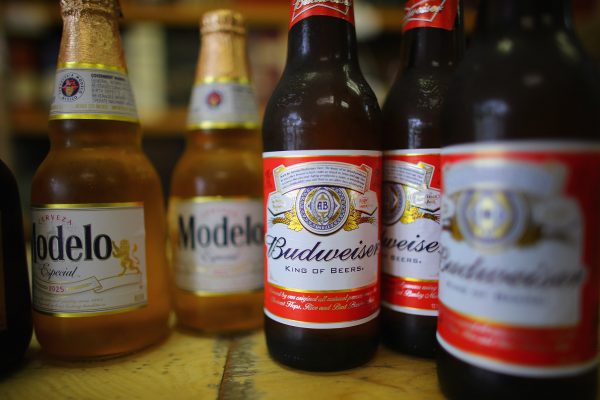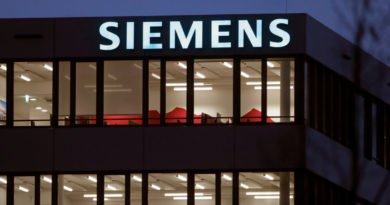Bud Light No Longer the Top-Selling Beer Brand in US Amid Boycott
Bud Light is no longer the top-selling beer brand in the United States amid a boycott over the company’s decision to produce a promotional beer can for transgender influencer Dylan Mulvaney.
Industry figures provided to Newsweek show that Modelo Especial’s sales topped $333 million in the four weeks that ended on May 28, compared with Bud Light’s $297 million. The Bud Light numbers represent a 22.8 percent drop year-over-year, while Modelo’s sales are up 15.6 percent in the same time period, figures from Circana and IRI show.
Inside the United States, Modelo is owned by Constellation Brands. Outside, it is owned by Anheuser-Busch InBev, which also makes Bud Light. Several years ago, U.S. regulators forced AB InBev to sell Modelo’s American business to preserve competition in the market.
Bill Newlands, the chief executive officer of Constellation Brands, told Newsweek that the four-week spike in sales had happened “quicker than we had anticipated.”
“We thought that would take a little longer,” he continued to say. “We’ve been very fortunate that that’s gone a little quicker than we had anticipated. But what a great position to be in on the beer side.”
Bud Light is still the No. 1-selling beer in the United States year to date, in spite of the boycott, which started in early April, and consecutive weeks of sales declines. According to Nielsen IQ data that was provided to CNN and other outlets this week, Bud Light made up 35.1 percent of all U.S. beer sales through May 27, beating out Coors Light, which has about 21.6 percent of the market.
In the past week, however, data shows that Bud Light’s sales are continuing to slide, while AB InBev’s stock is down about 17 percent since the boycott and backlash erupted. In the week ending May 27, Bud Light dropped nearly 24 percent from a year ago, while the week before that saw a decline of 25.7 percent, data from Bump Williams Consulting shows, according to Yahoo.
“Another week of very weak trends for Bud Light indicates that tracked channels may be reaching a point of stabilization, albeit at significantly lower levels for Anheuser-Busch InBev than prior to the controversy,” analysts with Evercore said, according to Yahoo.

It came after Mulvaney, a transgender activist and TikTok influencer, created an Instagram post that endorsed the beer. After an April 3 video from musician Kid Rock that showed him shooting up cases of the beer, a widespread boycott ensued.
During an earnings call with investors, where Anheuser-Busch InBev CEO Michel Doukeris attempted to distance the brand from Mulvaney and said that “one can” with Mulvaney’s face was created. The company also shook up the marketing leadership at Bud Light in the wake of the backlash.
Doukeris also told the Financial Times in a subsequent interview that he believes social media-driven “misinformation” and “confusion” were partly to blame for the sales decline. The company is planning to triple its investment into Bud Light over the summer, he said.
“People often talk about this topic in social media like noise,” Doukeris told the Financial Times. “You have one fact, and every person puts an opinion behind the fact. And then the opinions start to be replicated fast on each and every comment. By the time that 10 or 20 people put a comment out there, the reality is no longer what the fact is, but is more [about] what the comments were.”
That hasn’t prevented Anheuser-Busch’s stock from being downgraded, however. In mid-May, an HSBC analyst revised the stock down to “hold” and said the company is dealing with a “Bud Light crisis” and speculated there are “deeper problems” that the company may not publicly admit.
“Is ABI’s leadership getting the brand culture transformation right? It’s mixed,” the analyst wrote last month. “At Ambev, we think the answer is ‘yes’; in the U.S., we think it’s ‘no.’ The way this Bud Light crisis came about a month ago, management’s response to it and the loss of unprecedented volume and brand relevance raises many questions.”
He also questioned why the firm’s American leadership ” underestimate the risk of pushback given the recent experience of other firms” in the wake of the Mulvaney controversy, adding: “If Budweiser and Bud Light are iconic American ideas that have long brought consumers together, why did these marketers fail to invite new consumers without alienating the core base of the firm’s largest brand?”
Former Anheuser-Busch executives have also publicly questioned why the company decided to use Mulvaney as part of a promotional deal.
“The minute you step into the political or religious spectrum, when you know your target audience is going to have a real issue with this, you know you’ve alienated at least half of your target audience,” Robert Lachky, former chief creative officer at Anheuser-Busch, said in May. ”In the end, people don’t like getting preached to, especially when it comes to drinking beer.”
The Epoch Times has contacted Anheuser-Busch for comment.




